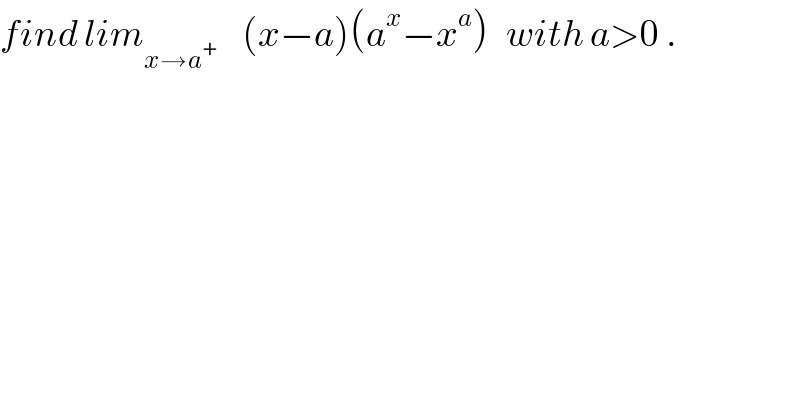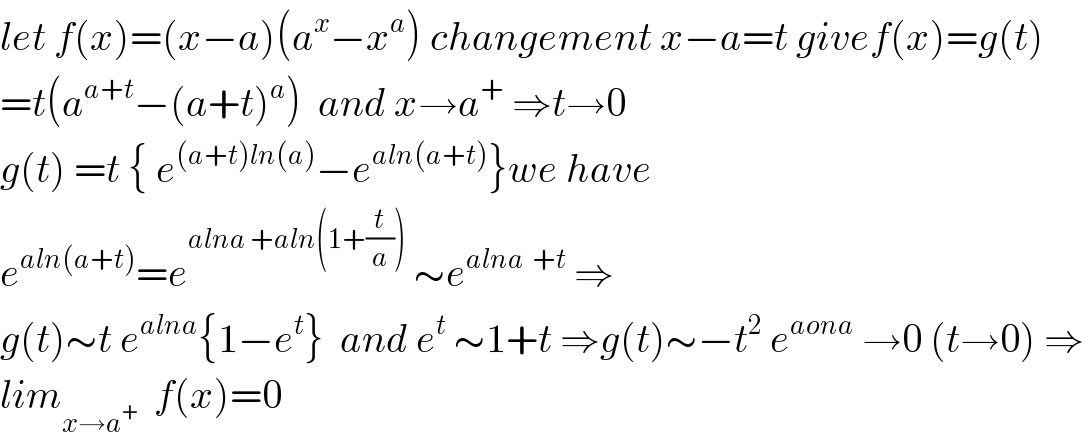
Question Number 49927 by Abdo msup. last updated on 12/Dec/18

$${find}\:{lim}_{{x}\rightarrow{a}^{+} } \:\:\:\:\left({x}−{a}\right)\left({a}^{{x}} −{x}^{{a}} \right)\:\:\:{with}\:{a}>\mathrm{0}\:. \\ $$
Commented byafachri last updated on 12/Dec/18

$$\mathrm{i}\:\mathrm{found}\:\mathrm{0}\:,\mathrm{Sir}.\: \\ $$ $$ \\ $$
Commented bymathmax by abdo last updated on 27/Feb/20

$${let}\:{f}\left({x}\right)=\left({x}−{a}\right)\left({a}^{{x}} −{x}^{{a}} \right)\:{changement}\:{x}−{a}={t}\:{givef}\left({x}\right)={g}\left({t}\right) \\ $$ $$={t}\left({a}^{{a}+{t}} −\left({a}+{t}\right)^{{a}} \right)\:\:{and}\:{x}\rightarrow{a}^{+} \:\Rightarrow{t}\rightarrow\mathrm{0} \\ $$ $${g}\left({t}\right)\:={t}\:\left\{\:{e}^{\left({a}+{t}\right){ln}\left({a}\right)} −{e}^{{aln}\left({a}+{t}\right)} \right\}{we}\:{have} \\ $$ $${e}^{{aln}\left({a}+{t}\right)} ={e}^{{alna}\:+{aln}\left(\mathrm{1}+\frac{{t}}{{a}}\right)} \:\sim{e}^{{alna}\:\:+{t}} \:\Rightarrow \\ $$ $${g}\left({t}\right)\sim{t}\:{e}^{{alna}} \left\{\mathrm{1}−{e}^{{t}} \right\}\:\:{and}\:{e}^{{t}} \:\sim\mathrm{1}+{t}\:\Rightarrow{g}\left({t}\right)\sim−{t}^{\mathrm{2}} \:{e}^{{aona}} \:\rightarrow\mathrm{0}\:\left({t}\rightarrow\mathrm{0}\right)\:\Rightarrow \\ $$ $${lim}_{{x}\rightarrow{a}^{+} } \:\:{f}\left({x}\right)=\mathrm{0} \\ $$
